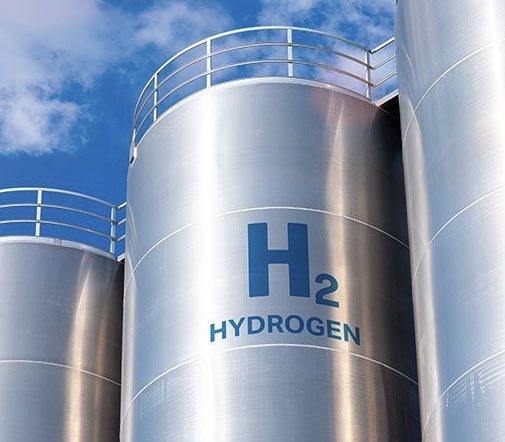Egypt has taken a significant step in its journey toward sustainable development by launching a comprehensive low-carbon hydrogen strategy. This forward-looking plan is designed to harness the potential of hydrogen as a clean energy source, positioning the country as a leader in the global low-carbon economy. The Egyptian Cabinet announced the strategy, which promises not only to drive economic growth but also to advance the nation’s energy security and environmental goals.
Prime Minister Mostafa Madbouli emphasized the strategic importance of this initiative as part of Egypt’s broader “Vision 2030” framework for sustainable development. According to Madbouli, the low-carbon hydrogen strategy is a crucial component in the government’s efforts to diversify energy sources, reduce carbon emissions, and fulfill Egypt’s international commitments to combat climate change. The strategy is expected to deliver substantial economic and social benefits in the long term.
The government’s projections for the strategy are ambitious. By 2040, the low-carbon hydrogen plan is anticipated to increase Egypt’s Gross Domestic Product (GDP) by nearly $18 billion. This economic boost will be accompanied by the creation of over 100,000 jobs, underscoring the strategy’s potential to significantly impact the labor market. Moreover, the strategy is expected to double Egypt’s energy security by diversifying energy sources, thereby reducing the country’s dependence on traditional fossil fuels.
Egypt’s state media reported that the strategy is poised to play a pivotal role in revitalizing the energy sector. It is also expected to attract substantial foreign investments, further fueling economic growth. The government highlighted that the strategy is designed to enhance economic efficiency through the better utilization of local resources. By developing a robust low-carbon hydrogen industry, Egypt aims to improve its energy independence while also contributing to global efforts to reduce greenhouse gas emissions.
The low-carbon hydrogen strategy is not merely a domestic initiative; it has significant international dimensions as well. The plan seeks to integrate global expertise and innovations in hydrogen production and renewable energy. By doing so, Egypt aspires to become a key player in the international hydrogen economy. The strategy outlines a roadmap for the development of a hydrogen ecosystem in Egypt, which will include the production, storage, and export of low-carbon hydrogen.
Several major hydrogen projects are already in the pipeline as part of this strategy. In July, Egypt signed multiple agreements with international partners to develop renewable energy projects, including those focused on green hydrogen and green ammonia production. These agreements, worth billions of dollars, are aimed at exporting renewable energy to the European Union, further cementing Egypt’s role in the global energy market.
Earlier this year, in February, Egypt entered into seven Memoranda of Understanding (MoUs) with global developers to explore green hydrogen and renewable energy projects. These MoUs represent an estimated investment of $41 billion over the next decade. These projects are expected to be game-changers for Egypt’s energy sector, paving the way for the country to become a leading exporter of green energy.
In addition to these agreements, a newly formed consortium has signed a framework agreement with the Egyptian government to evaluate the feasibility of a multi-phase green hydrogen project. This consortium is tasked with conducting in-depth studies and activities to assess the technical and commercial viability of the proposed project. The agreement marks a significant milestone in Egypt’s journey toward establishing a fully-fledged green hydrogen industry.
The Egyptian government has made it clear that the low-carbon hydrogen strategy is not just about meeting domestic energy needs. It is also about positioning Egypt as a global leader in the emerging hydrogen economy. The strategy is designed to leverage the country’s geographic advantages, including its proximity to European and Middle Eastern markets, as well as its abundant renewable energy resources, such as solar and wind power.
Egypt’s location is particularly strategic for the export of hydrogen and its derivatives, such as green ammonia, to international markets. The country’s access to both the Mediterranean Sea and the Red Sea gives it a unique advantage in shipping hydrogen to Europe, Asia, and beyond. This geographical positioning is expected to be a key factor in attracting foreign investment and forging international partnerships.
The government’s commitment to the low-carbon hydrogen strategy is also reflected in its broader environmental goals. By focusing on hydrogen as a clean energy source, Egypt is taking concrete steps to reduce its carbon footprint and mitigate the effects of climate change. The strategy aligns with global efforts to transition to low-carbon energy systems and to meet the targets set out in international agreements, such as the Paris Agreement.
Moreover, the economic impact of the strategy is expected to extend beyond the energy sector. The creation of over 100,000 jobs will have a ripple effect throughout the economy, boosting incomes and improving livelihoods. The government has highlighted that these jobs will not only be in the energy sector but will also span related industries, such as manufacturing, logistics, and research and development.
The strategy also includes plans for significant investments in infrastructure to support the hydrogen industry. This will involve the construction of facilities for hydrogen production, storage, and distribution, as well as the development of pipelines and other necessary infrastructure. These investments are expected to create additional jobs and contribute to the overall economic growth of the country.



